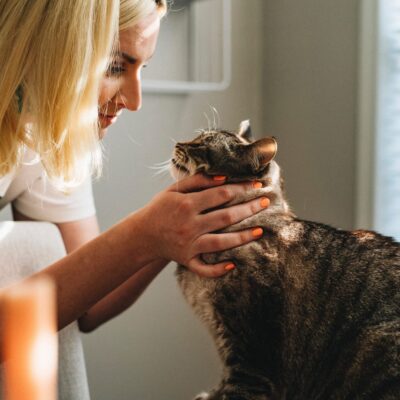Erasmus internship: Veterinary
Erasmus Internship: A rewarding experience for future veterinarians
The Erasmus Veterinary Internship is a unique opportunity for veterinary medicine students to have a rich and diverse experience in another European country. This program provides the chance to enhance professional and linguistic skills, broaden one’s network, and discover new cultures and working methods.
What is the Erasmus program?
The Erasmus program (European Region Action Scheme for the Mobility of University Students) was established in 1987 by the European Union to promote mobility among students and teachers across various European higher education institutions. Since its inception, millions of students have benefited from this program, allowing them to study or undertake internships abroad.
Program Objectives
The main objectives of the Erasmus program are:
- Foster cooperation between European higher education institutions and promote the mobility of students and academic staff.
- Provide participants with the opportunity to acquire intercultural, linguistic, and professional skills and knowledge.
- Contribute to the development of a European higher education area and strengthen the sense of belonging to Europe.
- Improve the quality of education and recognition of degrees and qualifications obtained in other member countries.
Erasmus Veterinary Internship: Who is it for?
The Erasmus Veterinary Internship is designed for veterinary medicine students enrolled in a European higher education institution participating in the Erasmus program. Candidates must be citizens of one of the European Union member countries or legally reside in one of these countries.
Participation Conditions
To participate in the Erasmus Veterinary Internship, students must:
- Be enrolled in a veterinary medicine program (at the bachelor’s, master’s, or doctoral level) at an institution participating in the Erasmus program.
- Have completed at least two years of studies in their initial program.
- Proficient in the language of the host country or have a sufficient level to attend classes and complete the internship.
- Undertake an internship with a minimum duration of two months and a maximum duration of twelve months.
Course of the Erasmus Veterinary internship
The Erasmus Veterinary Internship can be undertaken in a higher education institution, a research laboratory, a veterinary clinic, a company, or a non-governmental organization (NGO) located in a member country of the Erasmus program. The internship period must be recognized as an integral part of the student’s study curriculum and validated with European Credit Transfer and Accumulation System (ECTS) credits.
Internship Funding
Students participating in the Erasmus Veterinary Internship receive a mobility grant that covers a portion of the expenses related to their stay abroad (travel, accommodation, food, etc.). The grant amount varies depending on the host country and the duration of the internship.
Advantages of the Erasmus Veterinary Internship
Undertaking an Erasmus Veterinary Internship offers numerous advantages for students:
- Develop professional skills: The internship allows students to apply the knowledge gained during their education and learn new techniques and work methods.
- Improve linguistic skills: Working in an international environment provides daily practice of a foreign language, leading to better language proficiency.
- Discover new cultures: The internship provides a unique cultural experience, an opportunity to meet people from different backgrounds, and adapt to a new environment.
- Expand one’s network: Contacts made during the internship can lead to career opportunities abroad or in one’s home country.
- Enhance the CV: International experience is a valuable asset for future employers and can facilitate access to positions of responsibility.
Preparing for the Erasmus Veterinary Internship
To fully benefit from the Erasmus Veterinary Internship, thorough preparation is essential. Here are some tips for a successful experience:
- Research different internship possibilities (countries, institutions, themes) and choose the one that aligns best with professional and personal goals.
- Contact the Erasmus office at one’s institution and stay informed about administrative procedures (registration, grant application, recognition of ECTS credits, etc.).
- Allocate sufficient time for housing search and trip organization.
- Take language courses if necessary to be operational from the beginning of the internship.
- Ensure all necessary documents (passport, student ID, health insurance certificate, etc.) are in order and valid.
In summary, the Erasmus Veterinary Internship represents a formative and enriching experience for veterinary medicine students. It provides a unique opportunity to develop professional and linguistic skills while discovering new cultures and work methods.
Find out more about our internship sector
Espamob specializes in supporting groups during their Erasmus+ mobility. Explore in just a few clicks all the Erasmus internship sectors in Spain.
Discover the sectorsRequest a free quote
Do you have an idea for an Erasmus+ project in Spain and are you looking for a trusted reference to support you? Espamob‘ is here to help you! We offer you a free, no-obligation quote to help you manage your mobility project. Thanks to our experience and our network of partner companies, we can offer you personalized support to meet your specific needs. Contact us now to discuss your project and get your free quote.
Frequently asked questions
What are the advantages of choosing Espamob for undertaking an Erasmus veterinary internship in Spain?
Opting for Espamob to carry out an Erasmus veterinary internship in Spain comes with numerous benefits. The agency takes charge of managing your project from A to Z, guiding you through project creation, fundraising, and providing comprehensive logistical support. Moreover, Espamob has a network of partners, including universities and businesses specialized in the veterinary field, allowing you to benefit from an enriching internship experience tailored to your goals.
How does Espamob help you find accommodation for your Erasmus veterinary internship in Spain?
Espamob takes care of finding accommodation tailored to your needs during your Erasmus veterinary internship in Spain. The agency has a network of local partners, enabling them to offer quality accommodations located close to universities and partner businesses. Espamob also handles all administrative procedures related to the rental, allowing you to fully focus on your internship.
How does Espamob ensure your airport reception during your Erasmus veterinary internship in Spain?
Espamob ensures your airport reception during your Erasmus veterinary internship in Spain. The agency plans your arrival and arranges transportation from the airport to your accommodation. A member of the Espamob team will be present at the airport to welcome you and accompany you to your accommodation, ensuring a serene arrival and facilitating your integration into your new environment.

Find out more about the different Erasmus + destinations in Spain :


